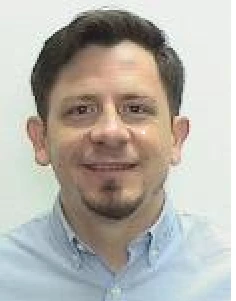For more than six years, the World Bank has trained government officials and other fiscal experts in over 30 countries on analyzing how fiscal policy can contribute to reducing poverty and inequality — an assessment technically called Fiscal Incidence Analysis (FIA).
How and where a government spends — and how it raises the resources to fund this spending — is a crucial factor in efforts to reduce inequality across the world. The relevance of these decisions has become especially evident as many countries had to act in response to COVID-19 and, more recently, other challenges, including high food and energy prices. Many of these countries were already in a weak fiscal position before the crises hit.
A form of FIA that has been commonly used over the last decade is the Commitment to Equity (CEQ), developed by the CEQ Institute at Tulane University. 1 . It accounts for the effects (to the extent permitted by data) of all taxes and transfers and their contribution to poverty and inequality reduction, along with the progressivity of the overall fiscal system. Another form is the fiscal microsimulation tool, which the World Bank developed in 2016. It is a more user-friendly way for policy makers to simulate and assess the impact of potential fiscal policies on equity.
FIA assessments often include capacity-building activities, or formal trainings offered to technical staff of ministries of finance and planning. The World Bank and the CEQ Institute are the leading organizations conducting FIA assessments. In addition to offering training in general FIA assessments, the World Bank has offered training on how to use microsimulation tools to 11 countries individually and to groups totaling 19 Francophone countries.
To take stock of the work done so far and extract key lessons, we interviewed several experts engaged in these capacity-building activities. This is what we learned:
Adapting training to each kind of audience can maximize results. For policy makers, the most appropriate training introduces key conceptual elements and underscores the use of FIA tools by focusing on real examples from policy discussions. Training that caters to higher-level policy makers can help identify and nurture FIA champions. Similar modules could be developed for research organizations, think tanks, journalists, and general audiences. For a smaller set of actual programmers, customization may entail covering a basic set of prerequisites, followed by in-depth training on the core substance of FIA methodology.
Figure 1: State of fiscal incidence analyses across the world
Note 1: a) New: FIA on 2015 or more recent using the CEQ methodology; b) In progress: FIA in progress using the CEQ methodology; c) OECD FIA: FIA published by the OECD; e) No survey: No survey data available; f) Old: FIA on 2014 or before using the CEQ methodology; g) No FIA: Survey data available but no FIA done.
Note 2: The name CEQ refers to studies that were conducted with the methodology developed by the Commitment to Equity Institute (CEQ Institute) at Tulane University. For details, see Nora Lustig (Ed.), Commitment to Equity Handbook. Estimating The Impact of Fiscal Policy on Inequality and Poverty. Brookings Institution Press. 2018. Data for the CEQ countries is available in the CEQ Data Center on Fiscal Redistribution, CEQ Institute, Tulane University, https://commitmentoequity.org/datacenter.
To cite authors of the CEQ studies by country, please go to the "References" tab of the CEQ Standard Indicators https://tulane.app.box.com/s/w5frpk5lum6jimodad2wp0dz5fdupp7h/file/959930285240.
Note 3:OECD FIAs include the computation of Gini indexes at Market Income and Disposable Income but exclude Consumable Income.
Fiscal microsimulation tools are easier to use and can provide multiple simulations per year. These tools may be better alternatives for settings in which capacity building must start with foundational skills, such as knowing how to handle data using statistical packages Stata. It has proved easier to train government officials on how to use a fiscal microsimulation tool than on how to conduct a FIA assessment. Also, the upfront cost to develop the microsimulation interface is more affordable (although for the tool to stay current, the FIA must be updated periodically). Furthermore, while a FIA assessment is a snapshot in time, a microsimulation tool permits policy makers to look at the likely impact of policy change scenarios in real time, and often multiple times per year.
Building the capacity of local experts is a promising strategy. Sustainability is a key challenge in all training efforts. One solution is to collaborate with think tanks and research universities to target FIA training efforts toward a community of local researchers who can work on the topic and produce FIA-type analyses or periodically update microsimulation models and plug those results into local policy conversations.
Support to FIA should be part of support to the broader evidence-based policy ecosystem. Institutions such as the World Bank can nurture a broader ecosystem for evidence-based policy making in low- and lower-middle-income countries. One priority is support for national statistical offices in these countries to conduct regular surveys of household living, standards/income expenditure, and the labor force. Another priority is to boost capacity within statistics and planning agencies, as well as non-government entities, to use data from these surveys to generate insights that can inform and influence relevant policy debates. Investments in FIA can yield a larger payoff if they are embedded in concurrent investments to nourish this entire ecosystem.
1 The name CEQ refers to studies that were conducted with the methodology developed by the Commitment to Equity Institute (CEQ Institute) at Tulane University. For details, see Nora Lustig (Ed.), Commitment to Equity Handbook. Estimating The Impact of Fiscal Policy on Inequality and Poverty. Brookings Institution Press. 2018. A second edition will be available at the end of 2022. The data for the CEQ countries shown on the map is available in the CEQ Data Center on Fiscal Redistribution, CEQ Institute, Tulane University, https://commitmentoequity.org/datacenter.






Join the Conversation